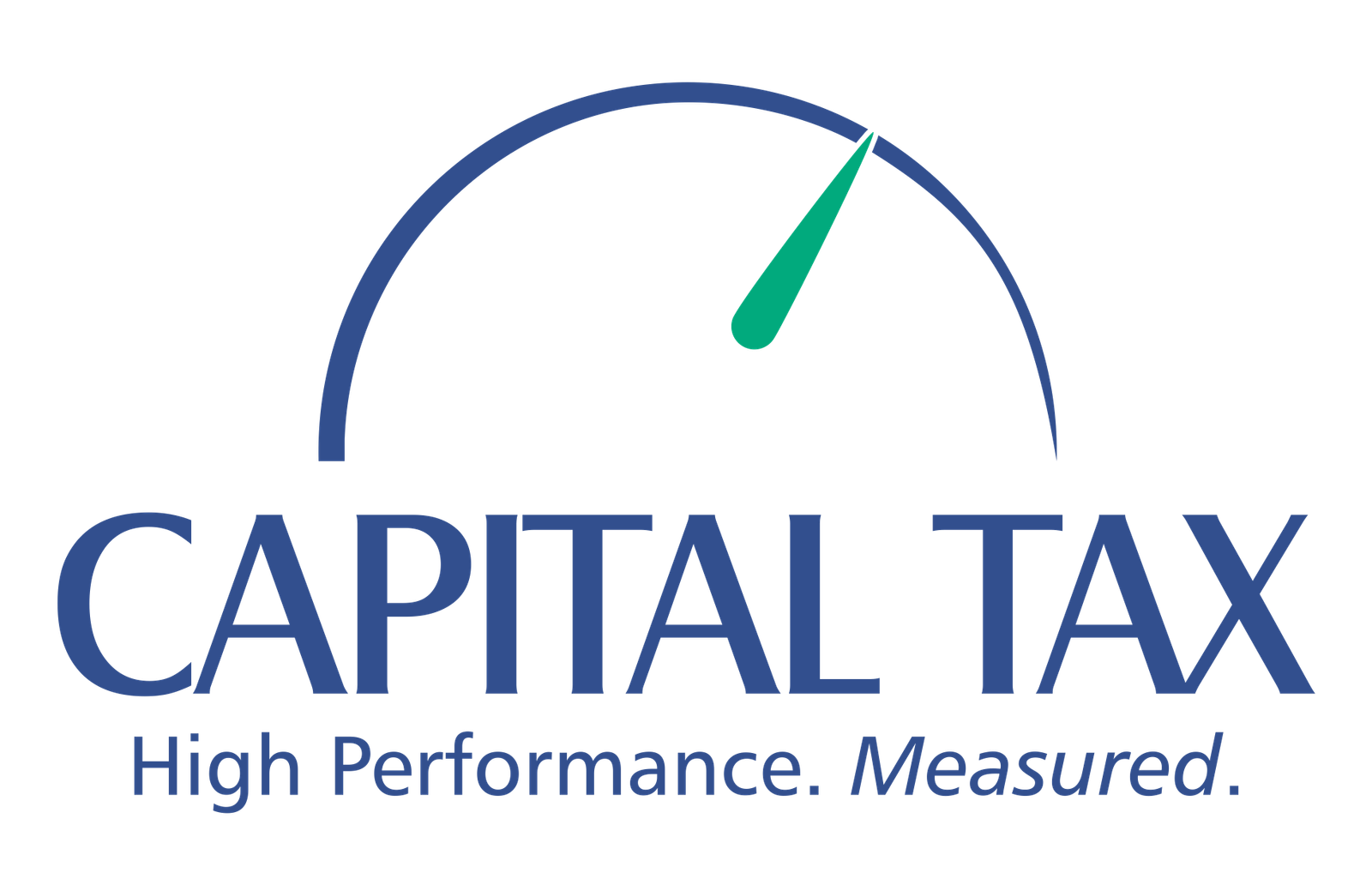Financial stress can be overwhelming, leaving individuals and families feeling trapped in a never-ending cycle of worry and uncertainty. However, there is a solution that can provide relief and pave the way towards financial stability: real estate tax planning. By exploring the connection between financial stress and real estate tax planning, individuals can gain a deeper understanding of how this strategic approach can alleviate their burdens.
Real estate tax planning offers numerous benefits for property owners. It allows them to strategically manage their taxes, reduce liabilities, and maximize deductions. This not only helps minimize financial strain but also enables individuals to build wealth over time. By taking advantage of the tax incentives available through real estate ownership, individuals can create a solid foundation for long-term financial security.
So, if you are looking to gain knowledge and insight into effective tax planning strategies for your real estate portfolio, stay tuned for our upcoming episodes!
The Burden Of Financial Stress: Understanding The Impact
Financial stress can have a significant impact on individuals and families, affecting their mental and physical well-being. It is important to explore the relationship between financial stress and overall quality of life to understand its detrimental effects.
Detrimental Effects Of Financial Stress
Financial stress can take a toll on one’s mental health, leading to increased anxiety, depression, and feelings of helplessness. Constant worry about money problems can be overwhelming and make it difficult for individuals to focus on other aspects of their lives. Financial stress can strain relationships with family members, friends, and colleagues due to the emotional burden it carries.
Impact On Mental And Physical Well-being
The weight of financial stress can manifest physically through symptoms such as headaches, sleep disturbances, and even chronic illnesses. The constant pressure of managing finances can lead to high levels of cortisol (the stress hormone) in the body, which negatively affects overall health. Moreover, individuals under financial strain may resort to unhealthy coping mechanisms like excessive alcohol or drug use as a means to escape their worries.
Relationship With Overall Quality Of Life
Financial stress has a direct impact on an individual’s overall quality of life. It limits their ability to enjoy leisure activities or pursue personal goals due to limited resources. Basic needs like housing, healthcare, education, and nutritious food may become unattainable for those experiencing severe financial stress. This creates a cycle where individuals feel trapped in their current situation without any means of improvement.
Prevalence And Severity Statistics
Statistics reveal the prevalence and severity of financial stress in society today:
-
According to a survey conducted by the American Psychological Association (APA), 72% of adults reported feeling stressed about money at least some point during the previous month.
-
Another study by Northwestern Mutual found that 44% of Americans feel anxious when thinking about their finances.
-
In a report published by the Federal Reserve, it was revealed that 40% of adults in the United States would struggle to cover an unexpected expense of $400.
These statistics highlight the widespread nature of financial stress and its impact on individuals from various backgrounds.
Understanding the detrimental effects of financial stress is crucial in finding effective ways to overcome it. Real estate tax planning can be one such solution that helps alleviate financial burdens and provides a pathway toward financial stability. By implementing strategies to manage taxes and optimize real estate investments, individuals can ease their stress, improve their financial situation, and ultimately enhance their overall well-being.
Real Estate As A Pillar Of Financial Stability
Recognizing Real Estate As A Valuable Asset For Building Wealth And Stability.
Real estate is more than just buying and selling properties – it can be a powerful tool for achieving financial stability. When you own real estate, you have an asset that can appreciate over time, providing a potential source of wealth. Unlike the stock market, which can be volatile and unpredictable, real estate offers a tangible and stable investment option.
Discussing How Property Ownership Can Provide A Sense Of Security During Uncertain Times.
Owning property gives you something solid to hold onto when times get tough. During uncertain economic periods or recessions, property values may fluctuate, but historically, real estate has shown resilience and the ability to rebound. This means that even during challenging times, owning property can provide a sense of security and stability.
Exploring The Potential Income Streams Associated With Owning Real Estate Properties.
One of the significant advantages of investing in real estate is the potential for generating income through various streams. For example:
-
Rental Income: Owning rental properties allows you to earn passive income by leasing them out to tenants.
-
Property Appreciation: Over time, your property’s value may increase significantly, allowing you to sell it at a higher price than what you initially paid.
-
Vacation Rentals: If your property is located in a popular tourist destination, you can rent it out on platforms like Airbnb or VRBO to generate additional income.
-
Commercial Properties: Investing in commercial properties such as office spaces or retail stores can provide steady rental income from businesses.
Highlighting Historical Data That Showcases The Long-Term Value Appreciation In Real Estate.
Looking at historical data reveals that real estate has consistently appreciated over the long term. While there may be short-term fluctuations due to market conditions, overall trends show that real estate tends to increase in value over time. This makes it an attractive option for individuals looking to build wealth and financial stability.
Real estate tax planning plays a crucial role in maximizing the benefits of property ownership. By understanding tax laws and regulations, you can take advantage of deductions, exemptions, and credits that can lower your tax liability. This allows you to keep more money in your pocket and further enhance your financial stability.
Strategic Real Estate Tax Planning: A Roadmap To Relief
Importance Of Proactive Tax Planning For Real Estate Owners
Proactive tax planning is crucial for real estate owners to overcome financial stress and maximize their savings. By implementing a strategic tax plan, individuals can minimize their tax liabilities and ensure they are taking full advantage of available deductions and credits.
One key benefit of proactive tax planning is the ability to identify potential savings opportunities that may otherwise go unnoticed. For example, real estate owners can explore various tax strategies specific to their investments, such as cost segregation studies or 1031 exchanges. These strategies allow them to defer taxes or accelerate deductions, ultimately reducing their overall tax burden.
Maximizing Savings Through Strategic Tax Planning
Strategic tax planning empowers real estate owners with the knowledge and tools needed to optimize their financial situation. By working closely with a qualified tax planner, individuals can develop creative plans tailored to their specific circumstances and investment goals.
Some effective strategies in real estate tax planning include:
-
Utilizing depreciation: Real estate owners can take advantage of depreciation deductions by allocating costs over the useful life of the property. This not only reduces taxable income but also provides additional cash flow for reinvestment.
-
Leveraging 1031 exchanges: This strategy allows investors to defer capital gains taxes by exchanging one investment property for another similar property. By deferring taxes, investors can preserve more capital for future investments.
-
Establishing a yield savings account: Setting up a yield savings account enables real estate owners to accumulate funds specifically designated for future taxes. This ensures they have sufficient funds available when it’s time to pay their tax obligations.
Case Studies Illustrating Successful Outcomes
Real-life case studies demonstrate how effective tax planning has led to successful outcomes for real estate owners. For instance, consider the case of John, who owned multiple rental properties but was burdened by high taxes each year. After consulting with a knowledgeable tax planner, John implemented a cost segregation study, which allowed him to accelerate depreciation deductions. As a result, his taxable income decreased significantly, leading to substantial tax savings.
Another example is Sarah, who wanted to sell her investment property but was concerned about the capital gains taxes she would incur. By utilizing a 1031 exchange, Sarah was able to defer her tax liability and reinvest the proceeds into a more lucrative property. This strategy not only helped her avoid immediate taxes but also positioned her for long-term financial growth.
Unlocking Financial Benefits: Tax Strategies For Real Estate Owners
Real estate ownership can be a lucrative investment, but it also comes with its fair share of financial responsibilities. Property taxes, income taxes, and capital gains taxes are just a few examples of the tax burdens that real estate owners face. However, by implementing effective tax strategies, these financial stressors can be mitigated or even eliminated.
Detailing Specific Tax Strategies
Real estate owners have access to various tax strategies that can significantly benefit their financial situation. By understanding and utilizing these strategies, they can optimize their tax environment and reduce their overall tax liability.
Deductions, Credits, And Exemptions
One key aspect of real estate tax planning is taking advantage of deductions, credits, and exemptions available to property owners. These benefits can help reduce taxable income and lower the amount owed in taxes. Some common deductions include mortgage interest expenses, property taxes paid, and operating expenses related to the property.
Here are some key deductions available for real estate owners:
-
Mortgage interest deduction: This allows homeowners to deduct the interest paid on their mortgage loans.
-
Property tax deduction: Real estate owners can deduct the amount they pay in property taxes each year.
-
Depreciation deduction: This deduction accounts for the wear and tear of a property over time and allows owners to deduct a portion of its value annually.
There are various credits available that provide direct reductions in tax liability. For example:
-
Energy-efficient home improvements credit: Real estate owners who make energy-efficient upgrades to their properties may qualify for this credit.
-
Low-income housing credit: Investors who develop low-income housing projects may be eligible for this credit.
Lastly, some exemptions exist that exclude certain types of income from being taxed altogether. For instance:
-
Homestead exemption: This exemption reduces the assessed value of an individual’s primary residence for property tax purposes.
-
Exclusion on capital gains from home sales: Homeowners can exclude a portion of the capital gains from the sale of their primary residence if certain criteria are met.
Leveraging Depreciation Allowances
Another effective tax strategy for real estate owners is leveraging depreciation allowances. Depreciation allows property owners to deduct a portion of the property’s value over time, accounting for its wear and tear. By strategically maximizing depreciation deductions, owners can optimize their cash flow and reduce their tax liability.
1031 Exchanges For Deferring Capital Gains Taxes
Real estate investors who plan to sell a property and reinvest in new ones can take advantage of 1031 exchanges. This provision in the tax code allows them to defer capital gains taxes on the sale by reinvesting the proceeds into like-kind properties. By deferring these taxes, investors have more funds available for future investments, allowing them to grow their real estate portfolio more effectively.
Building Long-Term Prosperity: Real Estate Investments In Action
Success Stories Of Financial Prosperity
Real estate investments have proven to be a pathway to long-term prosperity for many individuals. Let’s dive into some intriguing success stories that highlight the power of smart real estate investments. These stories will demonstrate how investing in real estate can lead to financial stability and wealth accumulation over time.
One notable success story is that of John, who purchased a rental property early in his career. By renting out the property, he was able to generate passive income every month. With careful management and maintenance, John’s investment property not only covered its expenses but also provided him with additional income.
Passive Income And Wealth Accumulation
Investing in rental properties offers the potential for passive income and wealth accumulation. Rental properties generate regular cash flow through tenant rent payments, allowing investors to build their savings or reinvest in other ventures. This steady stream of income can provide financial security and help individuals achieve their long-term goals.
Moreover, real estate investments often appreciate over time, resulting in increased property values. As a result, investors can benefit from both rental income and capital appreciation when they decide to sell their properties. This combination of ongoing cash flow and asset appreciation contributes significantly to long-term wealth accumulation.
Leveraging Real Estate Assets For More Opportunities
Another advantage of real estate investments is the ability to leverage assets for additional opportunities. By using the equity built up in one property, investors can secure financing for new investments or ventures. This strategy allows individuals to expand their portfolios without relying solely on personal savings or traditional loans.
For instance, Sarah owned a small apartment building that had appreciated significantly over the years. She decided to take advantage of this by obtaining a loan against the equity in her property. With the funds acquired through this process, Sarah was able to invest in another promising real estate opportunity while still maintaining ownership of her initial property.
Real Estate As Retirement And Legacy Planning
Real estate can serve as a strategic retirement plan or a tool for legacy planning. Many individuals choose to invest in real estate as a means of securing their financial future during retirement. By owning properties that generate consistent income, retirees can rely on rental payments to cover their living expenses.
Furthermore, real estate investments can be passed down through generations, creating a lasting legacy for families. Properties can provide ongoing income and wealth for heirs, ensuring financial stability for future generations.
Expert Guidance: Enlisting Professionals For Financial Peace Of Mind
Seeking professional advice for real estate tax planning is crucial in overcoming financial stress. The expertise and knowledge that tax professionals bring to the table can optimize financial outcomes and provide peace of mind. By partnering with experienced real estate agents, accountants, and tax advisors, individuals can navigate the complexities of real estate tax planning effectively.
One of the key benefits of enlisting the help of financial advisors, planners, and tax professionals is their ability to offer personalized guidance tailored to individual circumstances. These experts have a deep understanding of personal finance and can develop a comprehensive financial plan that takes into account specific goals and objectives. They can analyze an individual’s account portfolio risk levels and recommend strategies to maximize returns while minimizing tax liabilities.
Professionals specializing in this field possess valuable insights that can make a significant difference. Real estate agents who are well-versed in market trends and property valuations can help individuals identify lucrative investment opportunities. They have access to resources such as property listings and historical sales data that enable them to make informed decisions.
Accountants with expertise in real estate taxation play a vital role in optimizing financial outcomes. They stay updated on ever-changing tax laws and regulations related to real estate transactions. By leveraging their knowledge, individuals can take advantage of legal deductions and credits available to them, ultimately reducing their overall tax burden.
Finding qualified professionals specializing in real estate tax planning is essential for ensuring reliable advice. Individuals can seek recommendations from friends or family members who have had positive experiences with financial advisors or accountants specializing in real estate taxes. Online directories or professional organizations like the National Association of Personal Financial Advisors (NAPFA) also provide resources for locating reputable professionals.
In addition to offering expert guidance on real estate tax planning, these professionals often provide holistic services that encompass other aspects of personal finance. They may assist individuals in creating emergency funds or developing strategies for life insurance coverage. By taking a comprehensive approach to financial planning, individuals can achieve long-term prosperity and security.
Conclusion
In conclusion, real estate tax planning can be a powerful tool for overcoming financial stress. By understanding the impact of financial burdens and recognizing real estate as a pillar of stability, individuals can strategically navigate their tax obligations to find relief. Unlocking the financial benefits of tax strategies for real estate owners not only provides immediate relief but also builds long-term prosperity through smart investments.
To ensure success in real estate tax planning, it is essential to enlist the guidance of professionals who specialize in this field. Their expertise and knowledge will provide the necessary peace of mind and ensure that all aspects are handled with precision. With their help, individuals can navigate complex tax laws, optimize deductions, and maximize returns on their real estate investments.
If you’re feeling overwhelmed by financial stress or seeking ways to alleviate your tax burden while building wealth through real estate, take action today. Consult with trusted professionals who can guide you through the intricacies of strategic real estate tax planning. By implementing these strategies and making informed decisions, you can pave the way toward a more financially secure future.
Unlock Financial Success With Real Estate Tax Planning Services By Capital Tax
Are you in search of a trusted partner to handle your real estate tax planning needs? Look no further! Our CPA firm specializes in real estate tax planning and offers a wide range of services designed to maximize your financial potential. Whether you’re a real estate investor, property owner, or developer, our experienced team is here to guide you to success. Maximize your financial potential with our real estate tax planning services:
1. Expertise in Real Estate Taxation: Our qualified CPAs bring their extensive knowledge and experience in real estate taxation to provide accurate financial insights and strategic guidance tailored to your unique real estate portfolio.
2. Property Accounting Solutions: From bookkeeping for your real estate investments to financial statement preparation, we ensure your real estate business stays organized, tax-compliant, and poised for growth.
3. Strategic Tax Services: Stay ahead of evolving tax laws and regulations in the real estate industry with our comprehensive tax services. We’ll help you minimize your tax liability while ensuring full compliance with the latest tax codes.
4. Real Estate Tax Specialists: As a real estate professional, you need a trusted partner who understands the intricacies of your industry. Our dedicated real estate tax planning services offer personalized solutions to fuel your success in the property market.
5. Customized Tax Planning: Don’t let taxes hinder your real estate financial goals. Our expert tax planners will create customized strategies to optimize your tax efficiency, identify deductions, and maximize your savings as a real estate investor or property owner.
6. Hassle-Free Tax Preparation: Leave the complex task of real estate tax preparation to us. We’ll ensure accuracy and efficiency, allowing you to focus on what you do best – managing and growing your real estate investments.
Ready to take the next step toward financial success in the world of real estate? Contact us today to schedule a consultation with our team of professionals specializing in real estate tax planning. Let us show you how our comprehensive CPA services can transform your real estate financial outlook and pave the way for a prosperous future in property investment.
Disclaimer
The materials available on this website are for informational and entertainment purposes only and are not intended to provide accounting advice. It is recommended that you consult with a qualified accountant or accounting firm to obtain advice specific to your financial situation. You should not take action or refrain from taking action based on any content included on this site without seeking professional advice. The information presented on this website may not reflect the most current accounting practices and regulations. We disclaim all liability concerning actions taken or not taken based on any or all of the contents of this site to the fullest extent permitted by law.





